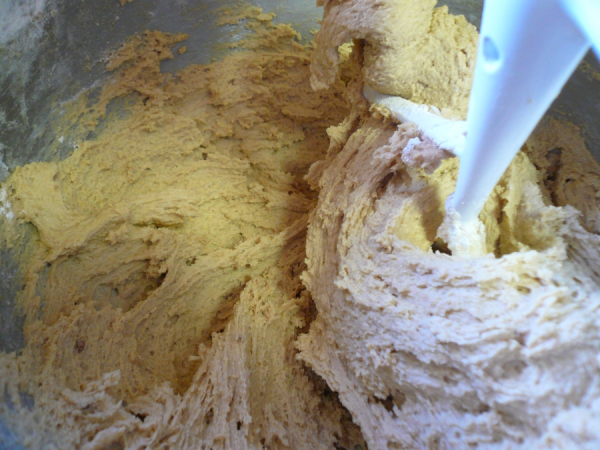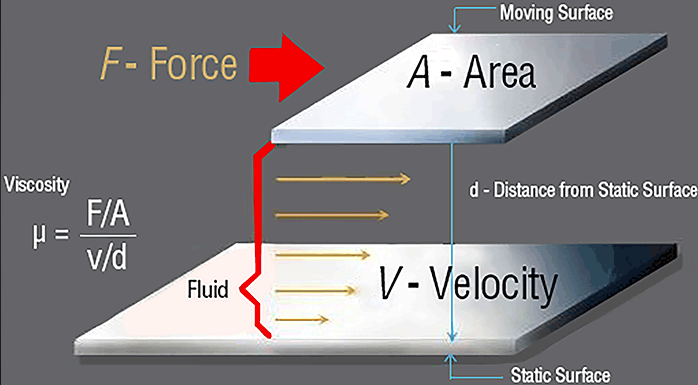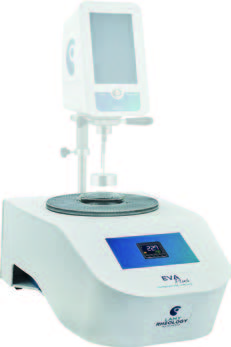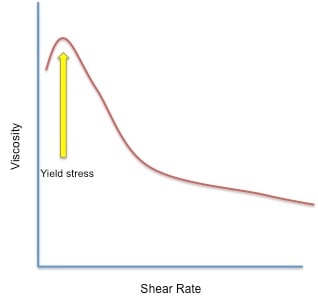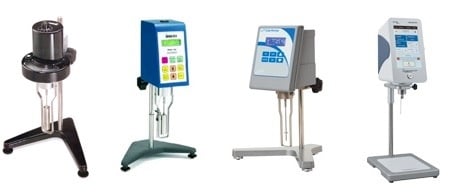At first glance, viscosity seems like a fairly simple concept. It helps describe how thick a product is, or how well it flows. That's all, right?
In reality, there are several different terms that come under the heading of viscosity. These terms are derived from how the viscosity is measured. When people talk about viscosity, they are talking about one of two things: kinematic viscosity or dynamic viscosity.
It's not easy to find a lot of information on the differences between dynamic and kinematic viscosity. This is my attempt to bring clarity to these two principal concepts.
Read More
Topics:
Newtonian Fluid,
Viscometers,
Viscosity,
Consistency,
Kinematic Viscosity,
Dynamic Viscosity,
rotational viscometer,
Liquid Properties,
density,
Texture Analysis,
gel time
Do an internet search for the term “viscosity”, and you’ll find a variety of definitions for the word. For example:
Read More
Topics:
Viscometers,
Viscosity
When people hear of viscosity for the first time, invariably they ask these three questions:
Read More
Topics:
Newtonian Fluid,
Measure Viscosity,
Viscometers,
Viscosity,
Viscosity in Food
Have you ever mixed up a batch of epoxy glue and, just before you finished the job, of course, had the mix unexpectedly turn into solid concrete? If you have, you experienced the effect of gel time. This term is a common measurement for products that thicken, cure, gel or harden when mixed. Product such as epoxies, adhesives, resins and coatings all use gel time measurements.
Read More
Topics:
Viscometers,
Viscosity,
gel time
The answer, like most answers in the crazy measurement world, is, “it depends”. To find out what it depends on, we'll start with defining viscosity.
Read More
Topics:
"Ask Art",
Newtonian Fluid,
Measure Viscosity,
Viscometers,
Viscosity
Peltier temperature control is becoming more common in viscosity testing, but traditional water baths are still the norm for many companies. Should you switch Peltier-based temperature control for you critical samples?
Read More
Topics:
Measure Viscosity,
Viscometers,
Viscosity,
viscometer,
rotational viscometer,
differences in rotational viscometers
What are Viscosity Flow Curves?
A flow curve – also known as a rheogram – is a graphical representation of how a flowing material (fluid) behaves when it is subjected to increasing or decreasing shear rates. The corresponding shear stress and viscosity are calculated from the instrument’s parameters. You can tell what type of fluid (Newtonian/Non-Newtonian, thixotropic, dilatant, etc.) the sample is by the shape of the flow curve.
Read More
Topics:
Measure Viscosity,
Viscometers,
Viscosity
Looking at the rotational viscometers on the market today, you'd expect to see small price differences between the instruments offered by competing brands. But what if you find one viscometer priced at $2000 and another at $9000? Is the $9000 viscometer a better instrument? Why is there such a price difference between the two instruments?
Viscometer prices depend on both the make-up of the instrument's motor, and on the technical features of the instrument (temperature probe, speed range, USB compatibility, etc.). There are two main types of rotational viscometers: those using a spring motor, and those using a servo motor.
In this article, I’m going to take a look the options available for rotational viscometers, and how those options affect the price.
Read More
Topics:
Viscometers,
Viscosity,
Dynamic Viscosity,
rotational viscometer,
Liquid Properties
Most rotational viscometer specifications promise high test accuracy and repeatability. However, an instrument on its own cannot guarantee accurate results. Instrument set-up and using the right test parameters are critical pieces of the puzzle.
Test parameters and turbulence are two key factors to consider when preparing to test with a rotational viscometer. The spindle, speed setting, and temperature of the product are some of the parameters that can impact test results. Additionally, turbulence in the sample’s flow during a test will distort viscosity readings. Knowing how to manage these two factors can significantly contribute to the accuracy of your testing.
Read More
Topics:
Measure Viscosity,
Viscometers,
Viscosity,
Dynamic Viscosity,
rotational viscometer,
Liquid Properties


